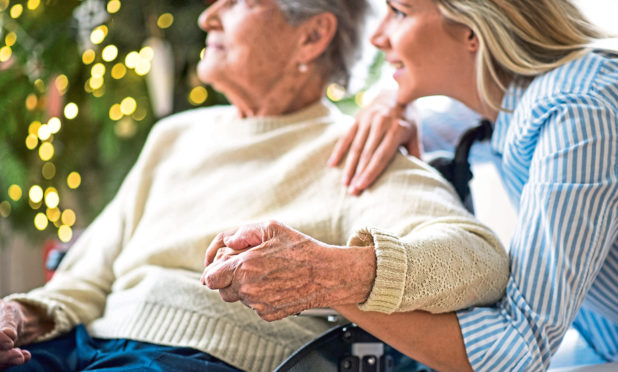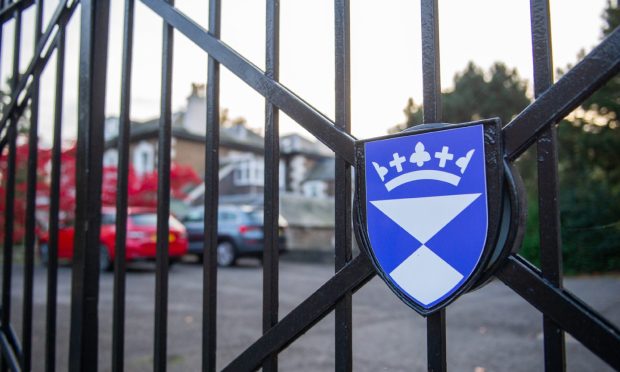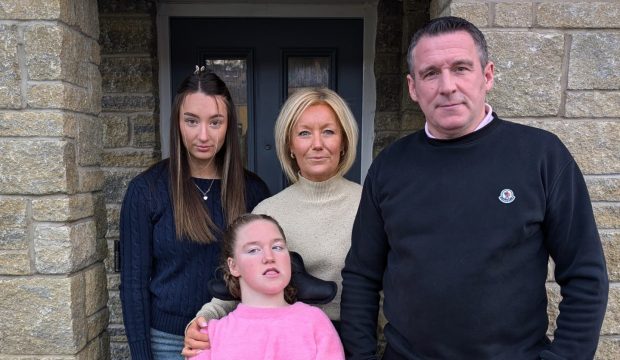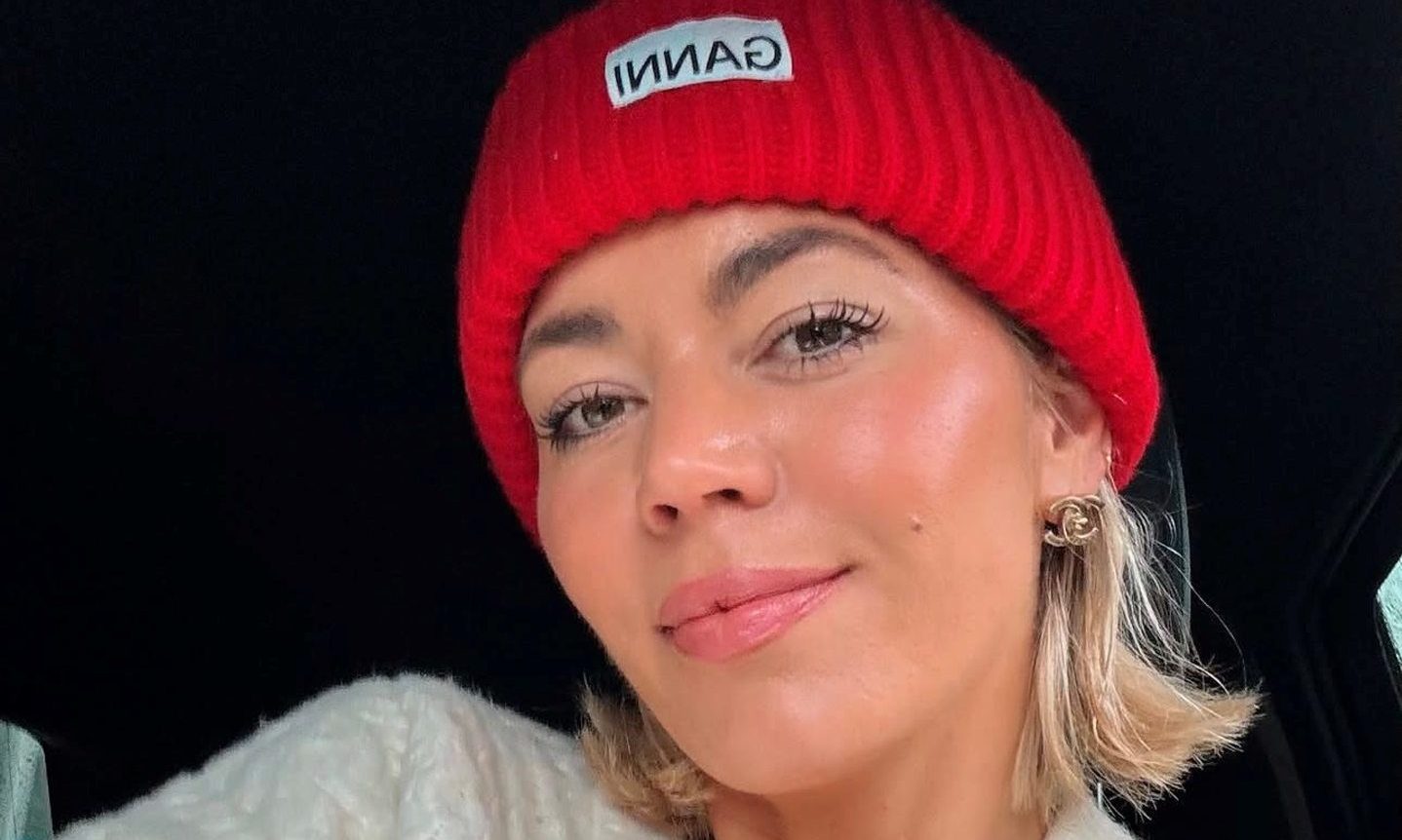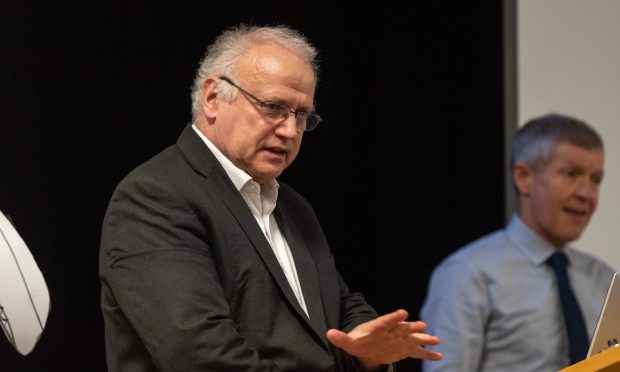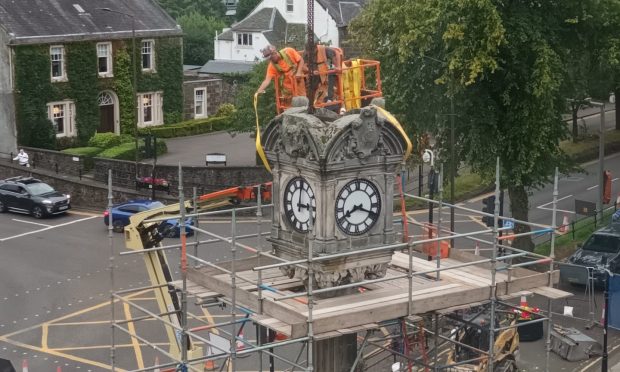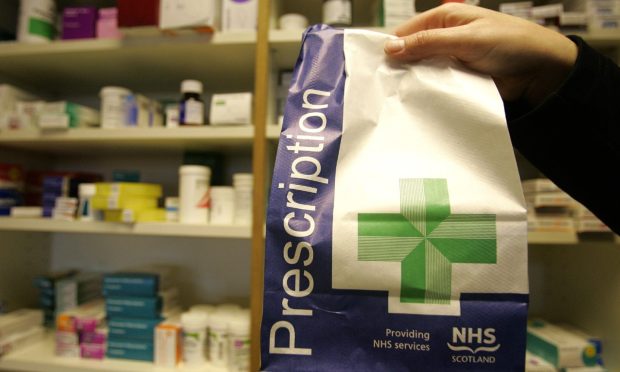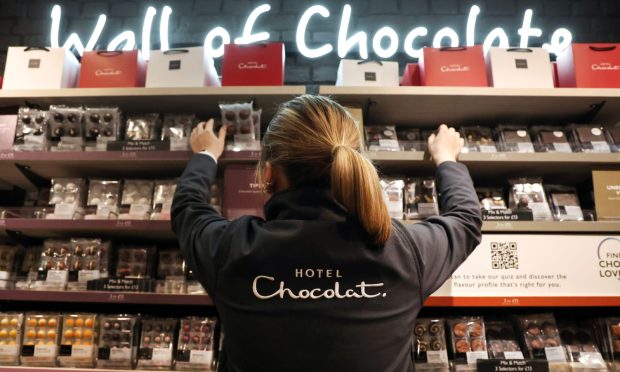An initiative to combat loneliness and support the vulnerable in the lead up to Christmas has been launched thanks to a partnership between DC Thomson and BT.
The move, which will see 25,000 copies of The Courier and The Press & Journal distributed to care homes and hospitals, takes effect today and will continue until Christmas Eve.
At the end of what has been an especially difficult year, 900 copies of each title will be distributed free of charge each day.
The idea was born out of an existing project set up by BT employees to help tackle loneliness in the UK.
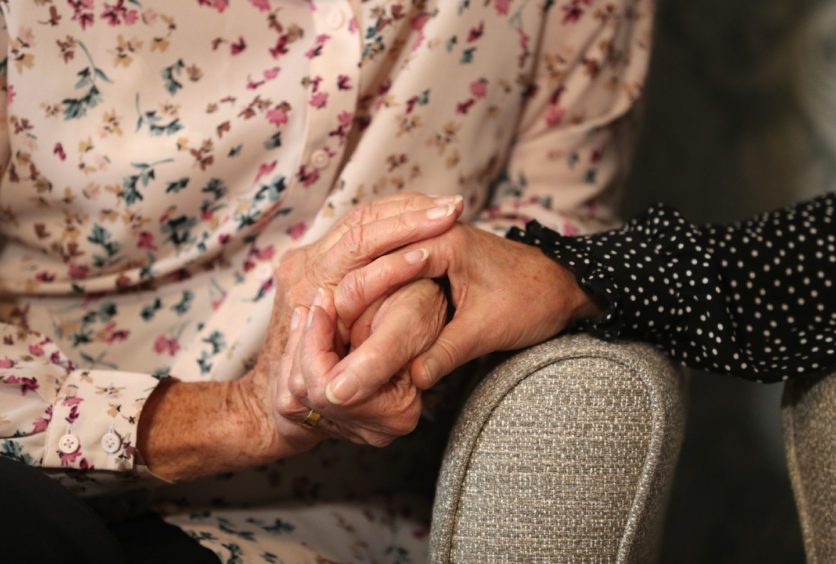
Lockdown and social distancing has had a devastating impact on residents in care homes, so BT, EE and Plusnet volunteers, with the help of The Courier, are now taking this project one step further to help combat loneliness for this vulnerable part of society.
At a time when the role of newspapers to keep people connected with their local communities and the world is more vital than ever, the initiative will also guarantee readers get access to accurate public health information as the new vaccine is rolled out.
To help lighten the loneliness epidemic in care homes, volunteers from BT’s contact centres have already been making regular calls to Marton Care Home residents.
The employee-led initiative offers volunteers from contact centres the opportunity to give back to their local community using their professional skills to chat with residents who might not have anyone else to talk to. Volunteers work with the care home managers to find a companion with similar interests to help get the budding friendships off to the best start.
Residents who don’t have a phone are provided with handsets and SIM cards by BT.
Despite being in its early stages, the project is already having positive results.
Nick Lane, MD of service with BT’s consumer division, said: “Giving back to the local communities is so important, so when we heard there was a group of people who’d appreciate a chat, our volunteers jumped at the chance to help.
“Being local and personal is such a big part of who we are now, meaning we’re uniquely placed to be making these calls to those in our communities who need it most.
“The feedback from all involved has been overwhelmingly positive and while we’re still at the trial stages, I’m hoping we can grow this.”
Bev Wilson, who helped to set up the scheme, said speaking to residents had been so rewarding.
“It’s important now more than ever because when people go into a care home, they tend to not get a lot of visitors. Now, they’re getting to speak to somebody different.
“We’ve heard of residents who hardly left their rooms prior to receiving our calls.
“Now they’ll socialise with the other residents, telling them all about their chat with us.
“The only thing that might cut a chat short is if the ice-cream van arrives!”
We want to be there for our community when it matters most
We may not be in official lockdown in Scotland but for many people the distinction between now and March is a narrow one, writes Courier editor David Clegg.
Yes, schools and shops are open, but the drive to protect health and reduce risk means that for many people – particularly the elderly and those with underlying health conditions – venturing outside is kept to a minimum.
This means a reduction in face-to-face contact with others which can heighten mental health and loneliness issues.
Furthermore it can also mean disconnection with trusted local information.
That is why The Courier – and its sister paper The Press & Journal – are today pledging to deliver 25,000 free newspapers between now and Christmas targeted at those who need it most.
Thanks to BT, which is funding the scheme, many vulnerable and elderly residents will be able to access our newspapers.
For some this might assist in keeping up with local news or offering fresh puzzles to solve, but for others the availability of trusted information about the Covid-19 vaccine and other healthcare services will be vital.
The mark of a newspaper’s connection with its community is to be there when it matters.
In March we offered free access to our e-paper subscription for three months and free adverts to local businesses. In recent months we have been supporting businesses through a variety of initiatives that encourage readers to shop locally. Now, the free newspaper programme will help those at Christmas.
I am thankful to those individuals and organisations on the ground who are helping us identify those who need us most.
As always if you have any ideas of how we can assist during this difficult time please get in touch.
